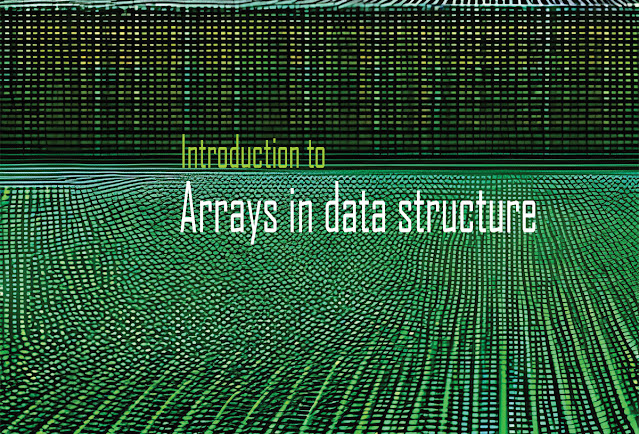Basic C Programs
Hi.
This is a basic programs for C language. These programs are wanted in the interview questions. They are as follows:
2. /* Print Floyd's Triangle of size n */
void floyd(int n)
{
int i, j;
int k = 1; /* Numbers start at 1 in our triangle */
/* Print the triangle */
for (i = 0; i < n; i++) {
for (j = 0; j < i; j++) {
/* Print a single number */
/* Maybe needs more formatting */
printf("%d ", k++);
}
/* Go to the next line */
printf("\n");
}
}
/*Another Armstorng */
This is a basic programs for C language. These programs are wanted in the interview questions. They are as follows:
/* floyd’s triangle*/
1. /* Print Floyd's Triangle of size n */
void floyd(int n)
{
/* Print the triangle */
for (i = 0; i < n; i++) {
for (j = 0; j < i; j++) {
/* Print a single number */
}
/* Go to the next line */
}
}
void floyd(int n)
{
/* Print the triangle */
for (i = 0; i < n; i++) {
for (j = 0; j < i; j++) {
/* Print a single number */
}
/* Go to the next line */
}
}
2. /* Print Floyd's Triangle of size n */
void floyd(int n)
{
int i, j;
int k = 1; /* Numbers start at 1 in our triangle */
/* Print the triangle */
for (i = 0; i < n; i++) {
for (j = 0; j < i; j++) {
/* Print a single number */
/* Maybe needs more formatting */
printf("%d ", k++);
}
/* Go to the next line */
printf("\n");
}
}
#include <stdio.h>
/* Paste the floyd function here */
int main(void)
{
floyd(5);
return 0;
}
/* Paste the floyd function here */
int main(void)
{
floyd(5);
return 0;
}
A test of the output shows that something isn't quite right:
CODE
1
2 3
4 5 6
7 8 9 10
/*Pascal Triangle*/
1
2 3
4 5 6
7 8 9 10
/*Pascal Triangle*/
int loop (int i, int j)
{
int i, j;
for (i = 0; i<=7; ++i) //7 will be the test value to stop loop
{
for (j = 0; j<=i; ++j)
{
printf ("%3d%3d", i, j);
if (i==j)
{
int i, j;
for (i = 0; i<=7; ++i) //7 will be the test value to stop loop
{
for (j = 0; j<=i; ++j)
{
printf ("%3d%3d", i, j);
if (i==j)
{
printf("\n");
}
}
}
}
int factorial (int n)
{
if (n==0) return 1;
else if (n*factorial(n-1));
else return n;
}
int combo (int n, int r)
{
return (factorial (n))/(factorial (r) * (factorial (n-r)));
}
printf("\n");
}
}
}
}
int factorial (int n)
{
if (n==0) return 1;
else if (n*factorial(n-1));
else return n;
}
int combo (int n, int r)
{
return (factorial (n))/(factorial (r) * (factorial (n-r)));
}
/*armstorng*/
Write a program to print out all Armstrong numbers between 1 and 500.
If sum of cubes of each digit of the number is equal to the number itself,
then the number is called an Armstrong number.
For example,
153 = (1*1*1) + (5*5*5) + (3*3*3)
#include<stdio.h>
main()
{
int number, temp, digit1, digit2, digit3;
printf("Printing all Armstrong numbers between 1 and 500:\n\n");
number = 001;
while (number <= 500)
{
digit1 = number - ((number / 10) * 10);
digit2 = (number / 10) - ((number / 100) * 10);
digit3 = (number / 100) - ((number / 1000) * 10);
temp = (digit1*digit1*digit1) + (digit2*digit2*digit2) + (digit3*digit3*digit3);
if (temp == number)
{
printf("\nAmstrong Number:%d", temp);
}
number++;
}
}
If sum of cubes of each digit of the number is equal to the number itself,
then the number is called an Armstrong number.
For example,
153 = (1*1*1) + (5*5*5) + (3*3*3)
#include<stdio.h>
main()
{
int number, temp, digit1, digit2, digit3;
printf("Printing all Armstrong numbers between 1 and 500:\n\n");
number = 001;
while (number <= 500)
{
digit1 = number - ((number / 10) * 10);
digit2 = (number / 10) - ((number / 100) * 10);
digit3 = (number / 100) - ((number / 1000) * 10);
temp = (digit1*digit1*digit1) + (digit2*digit2*digit2) + (digit3*digit3*digit3);
if (temp == number)
{
printf("\nAmstrong Number:%d", temp);
}
number++;
}
}
#include<stdio.h>
#include<conio.h>
void main()
{
clrscr();
int a, b, c, num, i=1;
Printf("Printing all the armstrong numbers");
while(i<=500)
{
a= i/100;
a= a*a*a;
num= i%100;
b= num/10;
b= b*b*b;
c= num%10;
c=c*c*c;
if(i==a+b+c)
#include<conio.h>
void main()
{
clrscr();
int a, b, c, num, i=1;
Printf("Printing all the armstrong numbers");
while(i<=500)
{
a= i/100;
a= a*a*a;
num= i%100;
b= num/10;
b= b*b*b;
c= num%10;
c=c*c*c;
if(i==a+b+c)
{
printf("\n Armstrong number= %d", i);
}
i++;
}
getch();
}
printf("\n Armstrong number= %d", i);
}
i++;
}
getch();
}



Comments
Post a Comment